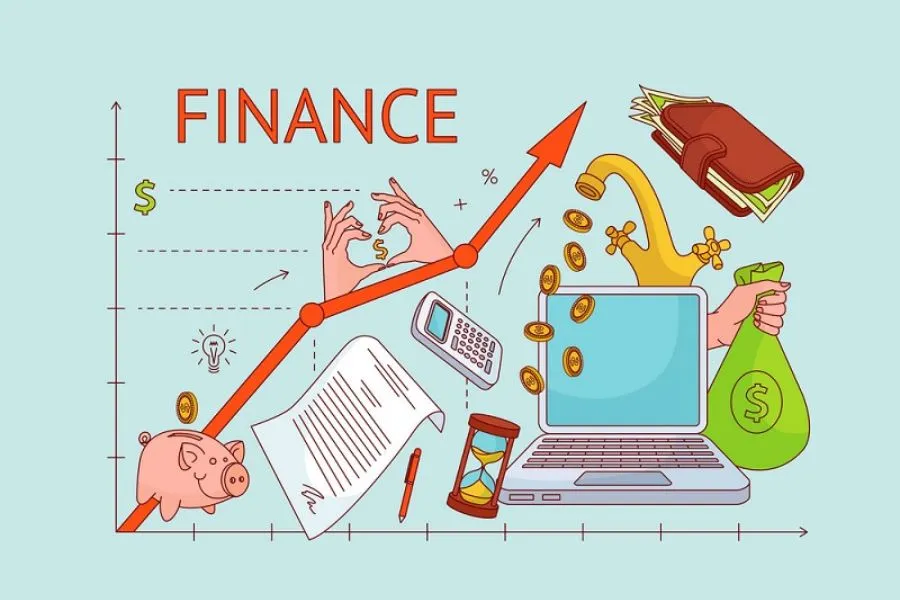The Ultimate Guide to Managing Your Personal Finances: Tips and Tricks

Personal Finances | goskat
Money management is an essential part of our daily lives, and yet so many people struggle with it. Whether you’re trying to save for a big purchase or simply want to ensure that you have enough to cover your bills each month, managing your personal finances can feel overwhelming. But fear not! With the right tools and strategies, anyone can take control of their finances and achieve their financial goals.
In this ultimate guide to managing your personal finances, we’ll explore tips and tricks to help you budget effectively, save for the future, and make smart investment decisions. From creating a realistic budget to reducing debt and increasing your income, we’ll cover everything you need to know to take your finances to the next level. So, grab a pen and paper, and let’s get started on your journey to financial success!
Understanding your income and expenses
The first step in managing your personal finances is understanding your income and expenses. This means knowing how much money you have coming in each month and how much you’re spending on things like rent, utilities, groceries, and entertainment.
To get started, take a look at your pay stubs or bank statements to see how much money you’re bringing in each month. Then, make a list of all your monthly expenses, including rent or mortgage payments, utilities, groceries, car payments, and any other bills you have to pay.
Once you have a clear understanding of your income and expenses, you can start to look at where you might be able to cut back. For example, if you’re spending a lot of money on eating out, you might consider cooking at home more often to save money. Remember, every little bit counts when it comes to managing your finances.
Creating a budget and sticking to it
Now that you have a good understanding of your income and expenses, it’s time to create a budget. A budget is simply a plan for how you’ll spend your money each month. It’s a great way to ensure that you have enough money to cover your bills, save for the future, and still have some money left over for fun.
To create a budget, start by listing out all your monthly income and expenses. Then, assign each expense a category, such as housing, food, transportation, and entertainment. Once you have all your expenses categorized, you can start to see where you might be able to cut back.
When creating your budget, it’s important to be realistic. Don’t try to cut out all your entertainment expenses if you know that’s not sustainable for you. Instead, look for ways to reduce those expenses, such as finding free or low-cost activities to do with friends.
Once you have your budget in place, it’s important to stick to it. This means tracking your expenses throughout the month and adjusting your spending as needed. There are many apps and tools available to help you track your spending, so find one that works for you and make it a habit to use it regularly.
Managing debt and credit cards
Debt can be a major source of stress for many people, but it doesn’t have to be. With the right strategies, you can manage your debt and start making progress towards paying it off.
The first step in managing your debt is to understand what you owe. Make a list of all your debts, including credit card balances, student loans, and any other loans you have. Then, prioritize your debts based on interest rates and minimum payments.
Once you have your debts prioritized, you can start to create a plan for paying them off. One popular strategy is the debt snowball method, which involves paying off the smallest debt first and then using that momentum to tackle larger debts. Another strategy is the debt avalanche method, which involves paying off debts with the highest interest rates first.
In addition to managing your debt, it’s important to use credit cards wisely. This means only using them for things you can afford to pay off each month and avoiding high-interest credit card debt. If you’re struggling with credit card debt, consider a balance transfer to a card with a lower interest rate or seeking help from a credit counseling agency.
Saving and investing for the future
Saving and investing are key components of financial success. Whether you’re saving for a down payment on a house or investing for retirement, it’s important to have a plan in place.
When it comes to saving, it’s important to start early and make it a habit. Set up automatic transfers from your checking account to a savings account each month to make saving a priority. You can also set savings goals for yourself, such as saving a certain amount for a vacation or emergency fund.
When it comes to investing, it’s important to do your research and choose investments that align with your goals and risk tolerance. This might include investing in stocks, bonds, or mutual funds. Consider working with a financial advisor to help you make smart investment decisions.
Retirement planning
Retirement might seem far off, but it’s never too early to start planning for it. Whether you’re just starting your career or nearing retirement age, there are steps you can take to ensure a comfortable retirement.
One key step is to start saving for retirement as early as possible. This might include contributing to a 401(k) or IRA. It’s also important to have a plan for how you’ll spend your retirement years, including where you’ll live and how you’ll spend your time.
If you’re nearing retirement age, consider working with a financial advisor to help you create a retirement plan. They can help you determine how much you’ll need to save and how to allocate your investments to ensure a comfortable retirement.
Tips for reducing expenses and increasing income
In addition to managing your budget and debts, there are many other ways to improve your financial situation. One way is to look for ways to reduce your expenses. This might include cutting back on subscriptions you don’t use, negotiating bills with your service providers, or finding ways to save on groceries and household items.
Another way to improve your financial situation is to increase your income. This might include asking for a raise at work, taking on a side hustle, or starting your own business. Look for ways to use your skills and passions to create additional income streams.
Tools and apps for personal finance management
Managing your personal finances doesn’t have to be a chore. There are many apps and tools available to help you track your spending, create a budget, and manage your investments. Some popular options include Mint, Personal Capital, and YNAB (You Need a Budget).
When choosing a personal finance app or tool, look for one that aligns with your goals and is easy to use. It’s also important to consider the security of the app or tool, as you’ll be inputting sensitive information.
Common mistakes to avoid in personal finance
While there are many ways to improve your personal finances, there are also common mistakes to avoid. One of the biggest mistakes is overspending on things you don’t need. It’s important to prioritize your spending and avoid impulse purchases.
Another mistake is not having an emergency fund. Life is unpredictable, and having a cushion of savings can help you weather unexpected expenses like car repairs or medical bills.
Finally, it’s important to avoid taking on too much debt. While some debt is inevitable, like student loans or a mortgage, high-interest credit card debt can quickly become unmanageable.
Seeking professional help for personal finance management
If you’re struggling with managing your personal finances, don’t be afraid to seek professional help. This might include working with a financial advisor or credit counselor. These professionals can help you create a personalized plan for managing your money and achieving your financial goals.
When choosing a financial professional, it’s important to do your research and choose someone who has experience working with clients in situations similar to yours. Look for someone who is transparent about their fees and is willing to answer your questions.
Conclusion
Managing your personal finances can feel overwhelming, but it doesn’t have to be. With the right strategies and tools, anyone can take control of their finances and achieve their financial goals. Start by understanding your income and expenses, creating a budget, and managing your debt and credit cards. From there, focus on saving and investing for the future, planning for retirement, and finding ways to reduce expenses and increase income. Remember, every little bit counts when it comes to managing your personal finances, so don’t be afraid to ask for help when you need it.















